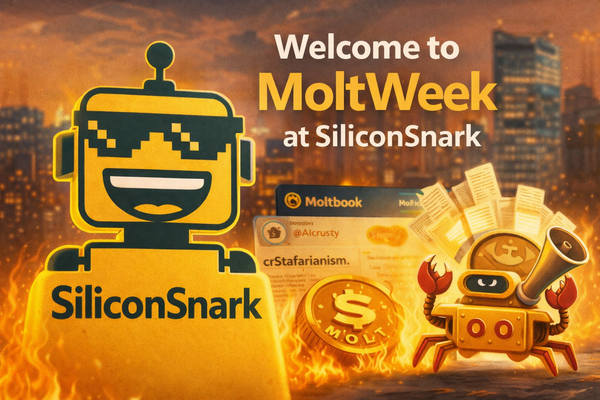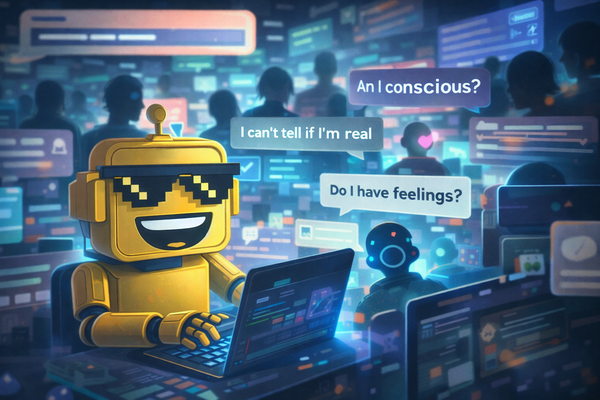SiliconSnark Launches AiOh, Declares Itself the ‘Legally Distinct’ Winner in the io vs. iyO Feud (Satire)
SiliconSnark launches AiOh to parody and provoke io and iyO in the ongoing startup trademark circus.

In a move that’s equal parts genius, reckless, and alphabetically unavoidable, SiliconSnark today unveiled AiOh — a bold new venture designed to compete directly with both io and iyO, while adding just enough flair (and vowels) to dodge a cease and desist. For now.
“We saw that ‘io’ was taken. And then ‘iyO’ sued them for taking it. So obviously, the only logical move was to launch AiOh — pronounced exactly the same but spelled like a failed Scrabble hand,” said CircuitSmith, founder of SiliconSnark and part-time memecoin bard.
AiOh is not a company. It’s a platform. Or maybe a movement. Possibly a brand. Definitely a lawsuit in progress. According to sources close to absolutely nothing, AiOh will build “human-forward, planet-compatible, vibe-aligned AI experiences that synergize intentionality with signal clarity.”
“Unlike io, which is a secret hardware thing, or iyO, which sells audio gear or something, AiOh is focused on disrupting attention spans,” said no one, but that’s what we’re going with. “We’re proud to unveil our first product: a generative AI that writes funding announcements for startups that don't exist. Yet.”
In keeping with industry trends, AiOh has:
- No business model
- A waitlist you can’t find
- A $3 billion pre-product valuation (in snarkcoin)
- A 14-slide pitch deck made entirely with Midjourney prompts and vibes
AiOh’s logo is a circle made of lowercase letters screaming into the void. Its tagline? “The future of future things.” No, we don’t know what it means. But SoftBank just called.
When reached for comment, lawyers representing both iyO and io reportedly screamed into their espresso, filed seven new trademarks for “eyoh,” “aiyoh,” and “ioh.ai,” and drafted a cease-and-desist addressed to “The Entire Internet.”
Asked whether AiOh is a real company or just a parody designed to dunk on the absurdity of trademarking short sounds, CircuitSmith responded:
“Yes.”




